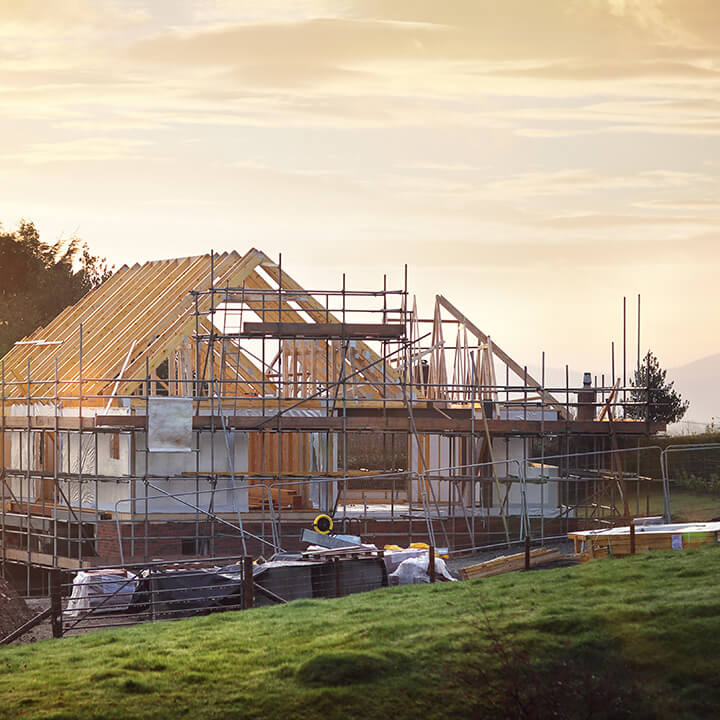Mayhew review and Integrated Retirement Communities (IRCs): The answer to the later living/care crisis?
24th January 2023
Adam Reed and Paul Laverty, Real Estate and Retirement Living specialists, highlight key takeaways from the recently published Mayhew review, ‘Future-proofing retirement living: Easing the care and housing crises’. Adam and Paul explain that Integrated Retirement Communities (IRCs) and the residential building industry may offer a vital solution.

Mayhew review and the later living/care crisis
” Fundamental change is needed in the way we provide care to older people and in their housing options.”
The Mayhew review, commissioned by ARCO and prepared by Professor Les Mayhew in conjunction with the International Longevity Centre UK, makes for compelling reading. It addresses a key issue affecting all of us, and our families, now and in the years to come: the provision of housing and care for the elderly.
The case for change is clear:
- The UK population aged 65+ is set to increase from 11.2 million today to 17.2 million by 2040
- Older people will account for 25-30% of the population in many areas
- As many as 6.2 million will live alone, half of them aged 80+, piling pressure on geographically dispersed care services
- Older people are living longer and remaining in their homes for longer. As children leave, homes become under-occupied
- According to current policy, the answer is to build more starter homes. To keep pace with the ageing population, the UK would need to build around 50,000 new later living homes per annum [1]
- We are not building enough new homes. As a result, house prices are not falling and younger generations are struggling to own their own homes
- The social care system is floundering. Designated geriatric care hospital beds have been phased out over recent decades. Keeping older people in hospital is therefore not an option, since it blocks beds and increases waiting lists
- There are not enough workers to deliver care to a widely dispersed older population. Geographically dispersed care in the community is also inefficient, with around 15% of spending relating solely to carer’s travel time and expenses. This type of care provision is also not optimal, as over-stretched, dispersed care doesn’t fully address the issue of loneliness in later living or prevent further deterioration of physical and mental health in the way that more proactive, preventative and people-centred care could.
So what’s the answer? Integrated Retirement Communities (IRCs)
Integrated Retirement Communities, or IRCs, (also known as housing with care, retirement villages, extra care, and so on) combine self-contained homes within a wider retirement community, with the option of care from 24 hour onsite staff, and wide-ranging facilities, including event programmes.
On the spot care provision within IRCs is more efficient, more timely, and often more effective than alternative options. There is also a growing body of evidence to suggest that the care needs of many residents living in Integrated Retirement Communities actually decrease, probably also due to the community/social aspects and mental health benefits contributing to an overall improved quality of life.
The Mayhew review argues that housing policy needs to focus as much on last-time buyers as on first-time buyers. It notes that, currently, specialist retirement housing only accounts for 10% of all older households in the UK. Despite a common perception that retirement villages are viable only at the ‘high end’ of the market, the vast majority (nearly 70%) of existing IRCs in the UK comprise affordable housing. In addition, according to ARCO analysis, only 0.6% of the over 65s in the UK are currently living in IRCs [2]. There is therefore significant available scope across the affordable, mid-level and high-end housing markets in the UK.
The Mayhew review recommends a significant expansion in the number of Integrated Retirement Communities that are built each year. IRCs typically comprise 60-200 units, and may be in or close to urban areas (offering the opportunity for repurposing town centre buildings), as well as on greenfield sites. Town centre IRCs would also bolster the levelling up agenda and local regeneration programmes.
The review also recommends closer working between planning and social care departments, so that the need for retirement housing with access to care is factored into Local Authority plans.
Switching from owner-occupation to renting or leasing, and other complexities linked to moving home and the social care cap, can be intimidating, and can operate as a barrier to downsizing for many people. The Mayhew review therefore also advocates provision of better information and advice to homeowners in relation to later living.
Later living/care and IRCs: How Walker Morris can help developers/operators
The findings of the Mayhew review indicate that there is a real opportunity for the residential building industry to make a key contribution to tackling, and potentially resolving, one of the most important issues facing the UK today and in the future.
IRCs are attractive to buyers, renters and investors. They represent a large potential market, with opportunities for developers and operators to generate both short- and long- term profit/income generation. Their track record is already proven in other jurisdictions, and evidence from the USA following the 2007/2008 global financial crisis suggests that they could help developers, operators and investors to weather economic headwinds in years to come.
Walker Morris’ Retirement Living specialists are drawn from a dedicated pool of corporate, commercial, employment, real estate, regulatory and housing management lawyers. As well as keeping our clients abreast of legal and regulatory developments, our specialists work seamlessly across all disciplines that come into play in the care and later/retirement living sectors. Our significant experience in the development and ongoing management of affordable housing and care/later living schemes means that we are ideally placed to advise developers, operators and investors in connection with all aspects of IRC development and operation.
Please contact Adam Reed, Paul Laverty or any member of the Retirement Living team for further information, advice or training.
[1] According to ARCO, that represents around a quarter of all housing being built
[2] In Australia, New Zealand and the USA, the figure is closer to 5-6%









